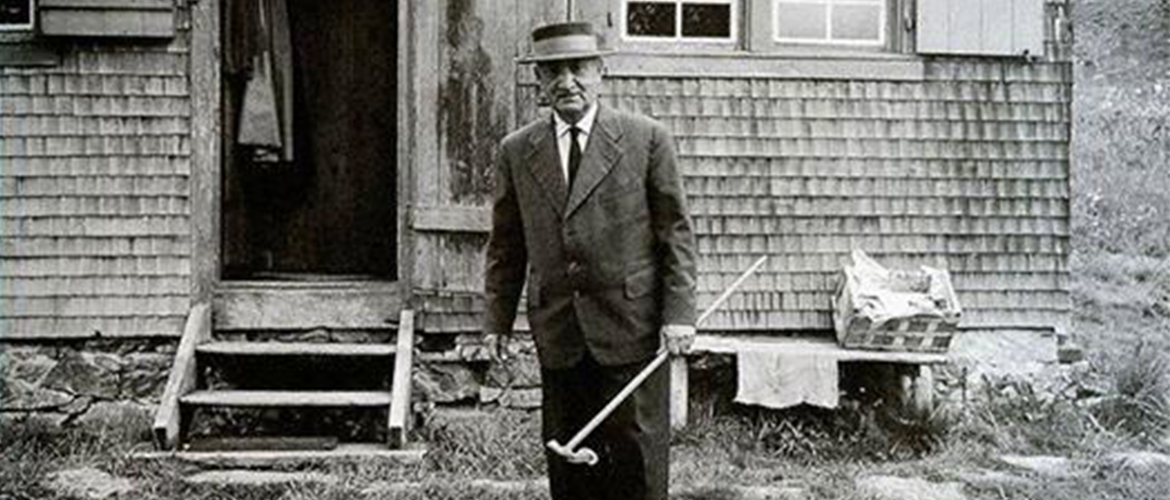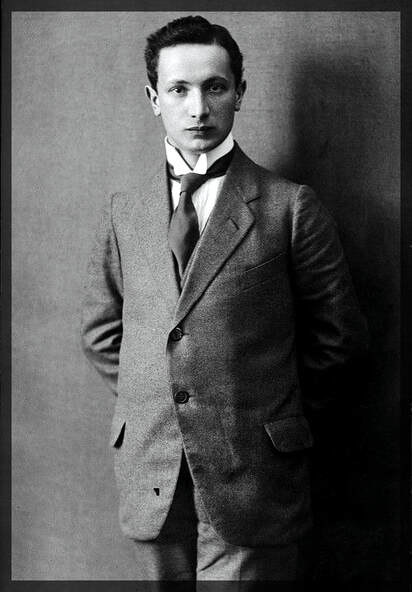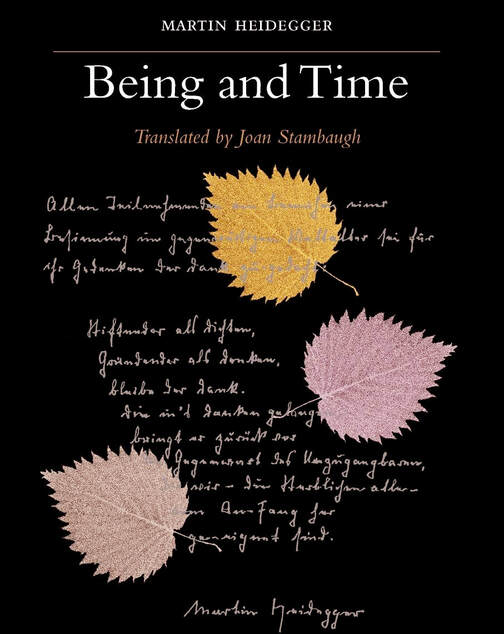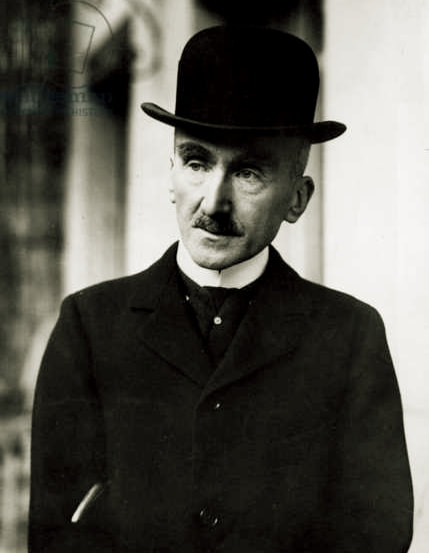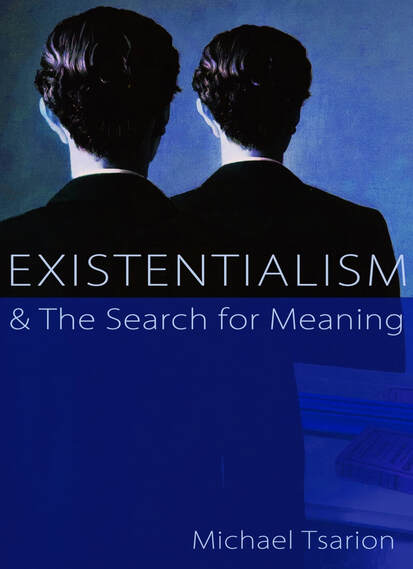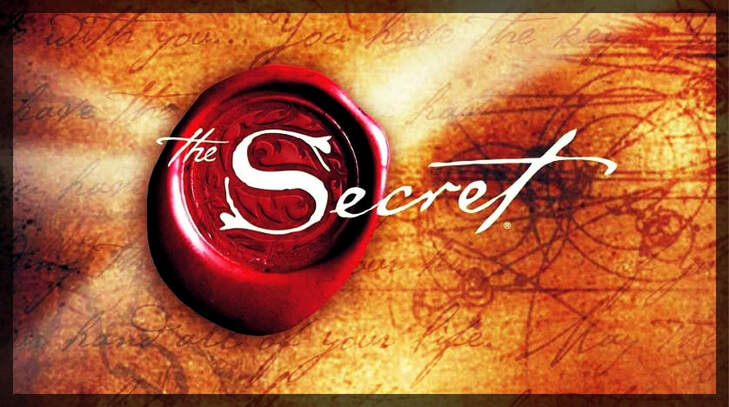PHILOSOPHER
OF DEATH
.
by Michael Tsarion
|
|
The world-historical context in which Heidegger raises the question of Being is one which he has described as “the darkening of the world, the flight of the gods, the devastation of the earth, the transformation of men into a mass, the hatred and suspicion of everything creative" - J. L. Mehta
|
|
Sartre and Freud were not the only thinkers to lament our penchant for self-deception. The expert on the subject, in all its nuances, was German philosopher Martin Heidegger.
Known best for his first book Being and Time, Heidegger's initial concern in the book is the identity of the questioner of life - the questioner of Being. Who is the person who thinks philosophically? What does he know about his subject of interest, and what does he know about himself? Is it possible for him to come upon his quarry - the nature of Being and meaning of existence - before he first possesses Self-knowledge? Not according to sages of the first rank.
Heidegger insists that the latter inquiry is of greater philosophical importance, since Being is rather an elusive and, arguably, impenetrable mystery. In Being and Time, the author successfully refocuses attention on the questioner of life and seeker after meaning.
Known best for his first book Being and Time, Heidegger's initial concern in the book is the identity of the questioner of life - the questioner of Being. Who is the person who thinks philosophically? What does he know about his subject of interest, and what does he know about himself? Is it possible for him to come upon his quarry - the nature of Being and meaning of existence - before he first possesses Self-knowledge? Not according to sages of the first rank.
Heidegger insists that the latter inquiry is of greater philosophical importance, since Being is rather an elusive and, arguably, impenetrable mystery. In Being and Time, the author successfully refocuses attention on the questioner of life and seeker after meaning.
|
|
…to work out the question of Being adequately, we must make an entity, the inquirer, transparent in his own Being - T. B. Yagi
Being itself could not be experienced without a more original experience of the essence of man and vice versa - Martin Heidegger |
It was a direction first explored by German philosopher Immanuel Kant. Technically, in philosophy, it is the province of Epistemology, the branch of philosophy concerned with what there is to know, and how we come to know about it.
Prior to Kant’s time the focus was on the branch of philosophy known as Metaphysics. By and large, metaphysicians concentrate on abstract problems, such as the existence and nature of God and substance of reality, etc. However, metaphysicians rarely delved deeply into the nature of consciousness itself. Metaphysics is closer to theology or religion, in that the identity of God takes precedence over the identity of man. The very term metaphysics means "beyond" or "greater" than the physical.
Metaphysics, and the questions it gave rise to, dominated the attention of thinkers from the era of Plato and Aristotle onwards. The neo-Platonists Plotinus and Porphyry, etc, were metaphysicians, as were all the Christian "scholastics" who followed them. Aquinas, Anselm, Augustine, Dun Scotus, and so on, can be listed as metaphysicians.
Prior to Kant’s time the focus was on the branch of philosophy known as Metaphysics. By and large, metaphysicians concentrate on abstract problems, such as the existence and nature of God and substance of reality, etc. However, metaphysicians rarely delved deeply into the nature of consciousness itself. Metaphysics is closer to theology or religion, in that the identity of God takes precedence over the identity of man. The very term metaphysics means "beyond" or "greater" than the physical.
Metaphysics, and the questions it gave rise to, dominated the attention of thinkers from the era of Plato and Aristotle onwards. The neo-Platonists Plotinus and Porphyry, etc, were metaphysicians, as were all the Christian "scholastics" who followed them. Aquinas, Anselm, Augustine, Dun Scotus, and so on, can be listed as metaphysicians.
|
|
Martin Heidegger (1889-1976), had the temerity to critique and overthrow the entire metaphysical tradition. After all, why waste time and thought on that which is "beyond" the physical, when we as humans are very much in the physical? We are in every sense Beings-in-the-World. Although his thought was highly idiosyncratic, he was not without predecessors. Chief among his influences were the poets Friedrich Holderlin and Rainer Maria Rilke. Other thinkers of the first rank whose work inspired him were Soren Kierkegaard, Friedrich Nietzsche, Karl Jaspers, Franz Brentano, Henri Bergson, Edmund Husserl, Oswald Spengler and possibly Martin Buber. Heidegger openly cited Heraclitus as an influence and was probably aware of the work of his contemporary Otto Rank. Heidegger met and was on good terms with the founders of Existential Psychology. Ludwig Binswanger and Medard Boss corresponded with Heidegger and cited him as a major influence, as did Gestalt Psychologist Maurice Merleau-Ponty. Heidegger's classes were filled with many later leading intellectuals, including William Richardson, Hannah Arendt, Jurgen Habermas, Leo Strauss, Arnie Naess, Herbert Marcuse and George Steiner, etc. His work influenced Jean-Paul Sartre, Gabriel Marcel, Paul Tillich, Michel Foucault, Jacques Derrida, Richard Rorty, Charles Taylor, and a host of others. He was offered illustrious posts by the leading Japanese masters of Taoism. Not wanting to leave Germany, he declined every offer. In return, the most eminent Taoist masters sent their sons and daughters to Germany to attend Heidegger's classes. Their personal memoirs contradict all the diatribes and accusations made against Heidegger by academics and the media. Werner Heisenberg, one of the foremost quantum theorists, visited and consulted with Heidegger at his residence in Freiberg.
|
|
|
|
…Heidegger takes his central task to be the overcoming of metaphysics - Julian Young
|
Heidegger didn’t think much of the metaphysical tradition. He knew it inside-out, but thought that philosophy had been seriously derailed by the those lost in metaphysical abstraction. The bulk of his writings brilliantly deconstruct the precepts and principles of metaphysics. He doesn't leave much standing.
Heidegger had more in common with ancient pre-Socratic sages, namely Heraclitus and Parmenides. Commenters see signs of eastern traditions in Heidegger’s writings, and debate about whether he was influenced by Taoism, Zen and other oriental schools of thought. Heideger’s later writings tend to be mystical in complexion. His thought certainly influenced the founders of the deep-ecology movement. Poetic allusions to nature are to be found throughout his books and lectures, and he ended his academic career pointing not to philosophy, per se, but to poetry, art and craft as important and legitimate paths to truth.
Indeed, Heidegger’s writings not only concern the being who asks questions about Being, but also the whole problem of Truth and what it is.
Heidegger had more in common with ancient pre-Socratic sages, namely Heraclitus and Parmenides. Commenters see signs of eastern traditions in Heidegger’s writings, and debate about whether he was influenced by Taoism, Zen and other oriental schools of thought. Heideger’s later writings tend to be mystical in complexion. His thought certainly influenced the founders of the deep-ecology movement. Poetic allusions to nature are to be found throughout his books and lectures, and he ended his academic career pointing not to philosophy, per se, but to poetry, art and craft as important and legitimate paths to truth.
Indeed, Heidegger’s writings not only concern the being who asks questions about Being, but also the whole problem of Truth and what it is.
|
|
This unique entity which raises the question of Being is not a chair, a fork, or a tree; it is rather the sort of entity that can make Being as its concern and Heidegger calls this entity ‘Dasein’ - T. B. Yagi
…Dasein is an entity that understands its own being. Dasein exists; and this means it makes choices. It is distinguished from all other entities by comporting itself toward its own existence - Richard Sembera |
|
Is truth merely a matter of subjective judgment, or is it something objectively certain? Indeed, what is a “subject?” Who is the person you take yourself to be?
If it turns out that a subject is little more than a pastiche of social customs and conventions, is it likely such an artificial construct can apprehend truth? Surely, a man must first be a wholesome Self before that can happen.
If it turns out that a subject is little more than a pastiche of social customs and conventions, is it likely such an artificial construct can apprehend truth? Surely, a man must first be a wholesome Self before that can happen.
|
|
Being and Time (1927), was immediately hailed as one of the greatest works of all time. Heidegger's thought had a dramatic impact on metaphysics, ontology, religion, ethics, epistemology, sociology, psychology, science, technology, phenomenology, philology, ecology, deconstructionism, humanism, feminism, postmodernism, and other schools of thought.
|
|
|
|
For me Heidegger has always been the essential philosopher…My entire philosophical development was determined by my reading of Heidegger - Michel Foucault
|
|
Fundamental to Heidegger’s teachings on the nature of Truth is the word itself; not in English or German, but in ancient Greek. The origin of the word is aletheia, which means “revealing,” “uncovering,” "unconcealing" or “unveiling.” It also connotes "unforgetting."
Heidegger used the metaphor of light to illustrate what he had in mind. In order for a light to shine forth, it must be uncovered from darkness by darkness. It emerges from the darkness and its identity as light depends on what we know and experience as darkness. It can be poetically said that light is actually a form or manifestation of darkness. It is a revelation of the darkness from which it emerges.
We've learned to call light the "opposite" of darkness, but Heidegger emphatically rejects this convention. It's due to contamination from erroneous dualistic paradigms that must be scrapped. He was strongly opposed to the metaphysical philosophy of Descartes. He was one of the foremost critics of Cartesianism and related traditions.
Clouds pass and sunlight beams forth. The sky is flooded with light. But in less than a minute clouds can again gather and obscure the sun's rays. Isn't the search for and manifestation of truth akin to this?
The act that reveals also makes us aware of something else, which is that unveiling continues and never ceases. It’s not a one-time affair. All acts of revealing truths also involve more unveiling. Why is this? Heidegger emphasizes the importance of this question.
It fascinated early Grecian sages, which is why the word aletheia was employed by them, but the insightful concept grew less important as Greek civilization declined. Since then, this most fundamental of all philosophical truths has lain dormant. For Heidegger all later approaches to finding truth are misgiven and wrongheaded. His critiques of metaphysical thinking are also directed to the basic precepts of science, technology and religion. They come about due to the forgetting of the ultimate question and Truth of Being..
Heidegger used the metaphor of light to illustrate what he had in mind. In order for a light to shine forth, it must be uncovered from darkness by darkness. It emerges from the darkness and its identity as light depends on what we know and experience as darkness. It can be poetically said that light is actually a form or manifestation of darkness. It is a revelation of the darkness from which it emerges.
We've learned to call light the "opposite" of darkness, but Heidegger emphatically rejects this convention. It's due to contamination from erroneous dualistic paradigms that must be scrapped. He was strongly opposed to the metaphysical philosophy of Descartes. He was one of the foremost critics of Cartesianism and related traditions.
Clouds pass and sunlight beams forth. The sky is flooded with light. But in less than a minute clouds can again gather and obscure the sun's rays. Isn't the search for and manifestation of truth akin to this?
The act that reveals also makes us aware of something else, which is that unveiling continues and never ceases. It’s not a one-time affair. All acts of revealing truths also involve more unveiling. Why is this? Heidegger emphasizes the importance of this question.
It fascinated early Grecian sages, which is why the word aletheia was employed by them, but the insightful concept grew less important as Greek civilization declined. Since then, this most fundamental of all philosophical truths has lain dormant. For Heidegger all later approaches to finding truth are misgiven and wrongheaded. His critiques of metaphysical thinking are also directed to the basic precepts of science, technology and religion. They come about due to the forgetting of the ultimate question and Truth of Being..
|
|
Scholars argue over who was Heidegger's foremost influence. A few believe it was French philosopher Henri Bergson (1859-1941). He certainly had insightful things to say about the phenomenon of time. Heidegger says of him "…Bergson tried to conceive the concept of time more originally. He made it more clear than any previous philosopher that time is interwoven with consciousness." Bergson also opposed Cartesianism, and as a Vitalist, he opposed hard dualism. His theory of the Elan Vital has largely been confirmed by Bruce Lipton, Rupert Sheldrake, and others.
|
|
|
|
While Being makes philosophy possible, it can never be grasped by philosophy - Katrin Froese
|
|
Why is it, Heidegger asked, that an act of unveiling a truth is invariably an act of partial unveiling? What is it about reality, that for every revelation, more remains to be revealed? Why is there no final denouement to the process? On close inspection, unconcealment is really a form of concealment. Why has this not been a concern?
Of course, this has massive implications for psychology and psychoanalysis, since the discovery and description of the “unconscious” seems to confirm Heidegger’s teachings. The workings of our minds are largely veiled. And the process of unveiling those workings is by no means a straightforward affair. Even when a client in therapy believes himself honest and forthcoming, he can be horribly wrong.
One does not control their ego’s defences any more than they control the blinking of their eyelids. Many times one must deny an aspect of themselves in order to come upon a greater truth about their identity. For example, an aggressive "superior" type may need to realize that his entire personality typology is an inauthentic compensation for underlying feelings of inferiority. Accepting the premise organically brings a hidden truth to light, while a false notion that once occupied the light of awareness is dimmed or altogether extinguished.
Likewise, a narcissist may never be healed until they discover the autophobia or self-loathing lying beneath their conscious image of themselves. The revelation includes an act of veiling, just as Heidegger says. The revealed truth shines forth whilst something else recedes into darkness. One could say a piece of darkness was illumined whilst another part, previously illumined, falls back into obscurity.
But that's not where the mystery ends. After all, what brought this strange alternating dynamic and sequence into being in the first place? Why is life this way and not another?
Of course, this has massive implications for psychology and psychoanalysis, since the discovery and description of the “unconscious” seems to confirm Heidegger’s teachings. The workings of our minds are largely veiled. And the process of unveiling those workings is by no means a straightforward affair. Even when a client in therapy believes himself honest and forthcoming, he can be horribly wrong.
One does not control their ego’s defences any more than they control the blinking of their eyelids. Many times one must deny an aspect of themselves in order to come upon a greater truth about their identity. For example, an aggressive "superior" type may need to realize that his entire personality typology is an inauthentic compensation for underlying feelings of inferiority. Accepting the premise organically brings a hidden truth to light, while a false notion that once occupied the light of awareness is dimmed or altogether extinguished.
Likewise, a narcissist may never be healed until they discover the autophobia or self-loathing lying beneath their conscious image of themselves. The revelation includes an act of veiling, just as Heidegger says. The revealed truth shines forth whilst something else recedes into darkness. One could say a piece of darkness was illumined whilst another part, previously illumined, falls back into obscurity.
But that's not where the mystery ends. After all, what brought this strange alternating dynamic and sequence into being in the first place? Why is life this way and not another?
|
|
What is the Being which makes possible all beings? - Martin Heidegger
|
|
Does this explain why, in the pursuit of knowledge, there's plenty of pursuit but little in the way of knowledge?
The Greeks were insightful when they chose the word aletheia to denote the complex phenomenon of truth. It affirms that so much more is involved between seeker and that which is sought. For Heidegger it was vital that we accept this veiling-unveiling process as ontological or fundamental to consciousness. There can be no understanding of the nature of Being without first grasping this principle. Metaphysicians, scientists and theologians primarily concern themselves with bright truths and final moments of total revelation. As Heidegger shows, they are about as far from truth as one can get.
For a Christian, knowing God leads to complete insight into the nature of reality. The scientist also has before him a captivating vision of total understanding of reality, courtesy of reason, intellect and experiment. It’s not going to happen, says Heidegger. How can it happen when the very act of uncovering a secret entails covering another one? For any bonfire to burn brightly, all things above, below and to the side must be thrown into darkness. There can be no sunlight without shadow, and the more brightly the illumination, the darker the surrounds must inevitably be. What does this mean for man's endless and voracious quest for knowledge?
The Greeks were insightful when they chose the word aletheia to denote the complex phenomenon of truth. It affirms that so much more is involved between seeker and that which is sought. For Heidegger it was vital that we accept this veiling-unveiling process as ontological or fundamental to consciousness. There can be no understanding of the nature of Being without first grasping this principle. Metaphysicians, scientists and theologians primarily concern themselves with bright truths and final moments of total revelation. As Heidegger shows, they are about as far from truth as one can get.
For a Christian, knowing God leads to complete insight into the nature of reality. The scientist also has before him a captivating vision of total understanding of reality, courtesy of reason, intellect and experiment. It’s not going to happen, says Heidegger. How can it happen when the very act of uncovering a secret entails covering another one? For any bonfire to burn brightly, all things above, below and to the side must be thrown into darkness. There can be no sunlight without shadow, and the more brightly the illumination, the darker the surrounds must inevitably be. What does this mean for man's endless and voracious quest for knowledge?
|
|
In my forthcoming book Existentialism and the Search for Meaning, I delve deeply into the thought of Heidegger and other major Existentialists.
|
|
|
|
The capacity to bear anxiety is one measure of selfhood - Rollo May
|
|
Heidegger was also the greatest exponent of what it means to be an “authentic” being. As explained elsewhere, it's not a frivolous or abstract denotation. Far from it. It defines a critically important comportment toward reality.
Heidegger's description of authentic Dasein (Man) is far too involved to cover here. However, his ideas about the role of death are of great importance. Life and death are certainly not opposites, and yet their profound connection has not been sufficiently explored by any thinker except Heidegger.
At a certain age, a child becomes aware of death’s reality and inevitability. At some point, in the future, life ceases. Okay, asks Heidegger, what happens to people when the full impact of this reality seizes them? Although the moment of life's termination lies in the future, the present is dramatically affected by thoughts of mortality. One becomes aware of their “temporal finitude.” As a result, one experiences deep frustration and anxiety. It feels as if an abyssal chasm has opened under one’s feet. Anything and everything one does is doomed to end forever. One’s whole life appears as a brief blip and then - nothing.
No one can change this terrible state of affairs, and science has no remedy to offer. One can turn to faith-based religions to quell angst, but despair and dread haunt the mind nonetheless. They are ontological.
This, says Heidegger, is the actual state of affairs existentially. The mood of dread underlies consciousness, and every aspect of our being is permeated with this concern over mortality. His term for this state is Being-Toward-Death. Man is literally this, and nothing can be understood about the quality of human existence until death stands forth as an issue. Some people make it a matter of concern, while others live long lives without ever attending to it. Neither group can make the problem go away.
Heidegger's description of authentic Dasein (Man) is far too involved to cover here. However, his ideas about the role of death are of great importance. Life and death are certainly not opposites, and yet their profound connection has not been sufficiently explored by any thinker except Heidegger.
At a certain age, a child becomes aware of death’s reality and inevitability. At some point, in the future, life ceases. Okay, asks Heidegger, what happens to people when the full impact of this reality seizes them? Although the moment of life's termination lies in the future, the present is dramatically affected by thoughts of mortality. One becomes aware of their “temporal finitude.” As a result, one experiences deep frustration and anxiety. It feels as if an abyssal chasm has opened under one’s feet. Anything and everything one does is doomed to end forever. One’s whole life appears as a brief blip and then - nothing.
No one can change this terrible state of affairs, and science has no remedy to offer. One can turn to faith-based religions to quell angst, but despair and dread haunt the mind nonetheless. They are ontological.
This, says Heidegger, is the actual state of affairs existentially. The mood of dread underlies consciousness, and every aspect of our being is permeated with this concern over mortality. His term for this state is Being-Toward-Death. Man is literally this, and nothing can be understood about the quality of human existence until death stands forth as an issue. Some people make it a matter of concern, while others live long lives without ever attending to it. Neither group can make the problem go away.
|
|
…as he worked it out in "Being and Time," the mood of Angst is more fundamentally constitutive of Dasein than any other mood, and confronting and resolutely taking up Angst is a defining feature of authentic existence - Richard Capobianco
|
|
Because of this basic existential condition, Dasein experiences changes to his being and comportment toward existence. There are two basic reactions to temporal finitude and the inevitability of death, says Heidegger. A person can either resolutely face up to it, or choose to flee all thought of it. Authentic Dasein confronts death bravely and decides to live more fully and vitally in the present, knowing that one day it will all be over. Inauthentic man gives the matter no thought at all, and flees into “ontic” existence, into the domestic and social spheres where he drowns out feelings of dread. To do so successfully entails finding causes and ideals to live for. As Existentialist philosopher Gabriel Marcel says, it means becoming preoccupied by problems. He often capitalizes the term to emphasize the sphere of the Problematic into which most humans flee to avoid thinking about their existential predicament. Marcel was highly influenced by Kierkegaard and Heidegger. He was undoubtedly the thinker who best grasped the essence of Heidegger's philosophy.
|
|
Pure Being and pure Nothing are the same - Georg Hegel
…Heidegger takes nothing to be equivalent to being - Zhihua Yao |
|
|
Whoopie...look at me Mama...far too busy to think about nothingness...
|
|
|
|
To be independent of public opinion is the first formal condition of achieving anything great or rational, whether in life or in science - Georg Hegel
|
The ontic sphere of existence is a curious place. Dasein sacrifices his being to inhabit it. He becomes Das Man, the grey nondescript “everyman,” happy to be like everyone else. In fact he demands people be like him, because, in his inauthentic mode of being it’s essential he has company and companionship. He does’t want to be alone in the darkness of his shrunken existence. He's bound to exchange quality for quantity, silence for noise, aloneness for entanglement.
His vision of the future alters also. He is still highly motivated by desires and aspirations. He has a long list of projects that must be accomplished, and his life has meaning because of future plans and dreams. This is, in fact, key to his commitment to the Problematic. It allows him to co-opt the plethora of “equipment” at hand around him which he utilizes to complete personal projects. It’s utilized as tools for the “problems” standing in the way of his future intentions and dreams. So involved is Das Man in this state of affairs, that he becomes defined as a being by it. Fortunately for Das Man, the noise of the Problematic world does the trick. He never need think about his underlying dread again. Heidegger believed that science and technology arose as the social expression of Das Man's inauthentic comportment toward the problem of temporal finitude.
Authentic Dasein, on the other hand, does not choose such a path. He doesn’t immerse himself in ontic preoccupations. He does not compulsively evade his ontological condition. Instead, he faces it and, as a result, undergoes profound changes to his being. Even if, on an everyday level, he works within the world of the Problematic, his thinking remains with the questions that really matter. He generally feels like an Outsider, even though he can always alleviate his angst by giving up and joining Das Man in his highly extraverted world. In most cases, the quality of his life is far deeper and richer than his counterpart.
Two attributes mark his authenticity, says Heidegger. First, he exists in a state of sorge or care. Secondly, his thinking is an expression of gratitude. Heidegger noted that the German word for thanks (Danken) is etymologically related to the word for thinking (Denken). All right, he asked, where is the person whose thought is an act of gratitude for existence?
Sorge or care is not necessarily directed toward other people. Rather, it is the concern over the quality of one's being now that one accepts themselves as Being-Toward-Death. Who else can possibly upgrade my lifestyle? Who else can project their mind forward in time to the moment of death and return it to the present in a state of reverence and gratitude except myself? Another person's demise is not as existentially impactful and meaningful as my own. Nor should it be. No! this is the most personal act of thought there can be. The thinking, actions and behavior of other people have no say in this process. At all times the quality of life lies in one's own hands. No one can live for me, and no one can die for me.
His vision of the future alters also. He is still highly motivated by desires and aspirations. He has a long list of projects that must be accomplished, and his life has meaning because of future plans and dreams. This is, in fact, key to his commitment to the Problematic. It allows him to co-opt the plethora of “equipment” at hand around him which he utilizes to complete personal projects. It’s utilized as tools for the “problems” standing in the way of his future intentions and dreams. So involved is Das Man in this state of affairs, that he becomes defined as a being by it. Fortunately for Das Man, the noise of the Problematic world does the trick. He never need think about his underlying dread again. Heidegger believed that science and technology arose as the social expression of Das Man's inauthentic comportment toward the problem of temporal finitude.
Authentic Dasein, on the other hand, does not choose such a path. He doesn’t immerse himself in ontic preoccupations. He does not compulsively evade his ontological condition. Instead, he faces it and, as a result, undergoes profound changes to his being. Even if, on an everyday level, he works within the world of the Problematic, his thinking remains with the questions that really matter. He generally feels like an Outsider, even though he can always alleviate his angst by giving up and joining Das Man in his highly extraverted world. In most cases, the quality of his life is far deeper and richer than his counterpart.
Two attributes mark his authenticity, says Heidegger. First, he exists in a state of sorge or care. Secondly, his thinking is an expression of gratitude. Heidegger noted that the German word for thanks (Danken) is etymologically related to the word for thinking (Denken). All right, he asked, where is the person whose thought is an act of gratitude for existence?
Sorge or care is not necessarily directed toward other people. Rather, it is the concern over the quality of one's being now that one accepts themselves as Being-Toward-Death. Who else can possibly upgrade my lifestyle? Who else can project their mind forward in time to the moment of death and return it to the present in a state of reverence and gratitude except myself? Another person's demise is not as existentially impactful and meaningful as my own. Nor should it be. No! this is the most personal act of thought there can be. The thinking, actions and behavior of other people have no say in this process. At all times the quality of life lies in one's own hands. No one can live for me, and no one can die for me.
|
|
...since each Dasein must encounter itself through itself, such an encounter must be a personal one. In place of all the abstract ideas which the philosophers of the tradition occupied themselves with, Kierkegaard and Heidegger have rectified the focus in these ways that we now have a clearer understanding of who we are and our way of Being-in-the-world - T. B. Yagi
|
Dasein's vision of the future isn’t one of denial and resistance. By contemplating nothingness, authentic Dasein lets it instruct him. He enters into relationship with it, and as a result lives each minute with increased lucidity, intensity and gratefulness. What we call the "present" is far more real for him, and time itself takes on a meaning not commonly found in others.
As Heidegger puts it, if I know death is the possibility that puts an end to all my possibilities, I pick my present possibilities with care. What I do and who I am becomes infinitely more important to me. Being-Toward-Death is existentally Self-Owned.
What Dasein creates and establishes is imbued with greater meaning than his counterpart is aware of. He has not fled from himself because of the discomfort of his underlying angst. He dialogues with it and thereby positively intensifies his being. He does not flit away time and energy in wasteful pursuits, and doesn’t depend on facile religious soporifics to dull his constitutional dread of nonexistence. He accepts the burden of legitimate despair and doesn’t take refuge in neurotic misery.
As Heidegger puts it, if I know death is the possibility that puts an end to all my possibilities, I pick my present possibilities with care. What I do and who I am becomes infinitely more important to me. Being-Toward-Death is existentally Self-Owned.
What Dasein creates and establishes is imbued with greater meaning than his counterpart is aware of. He has not fled from himself because of the discomfort of his underlying angst. He dialogues with it and thereby positively intensifies his being. He does not flit away time and energy in wasteful pursuits, and doesn’t depend on facile religious soporifics to dull his constitutional dread of nonexistence. He accepts the burden of legitimate despair and doesn’t take refuge in neurotic misery.
|
|
Heidegger's profound statements about authenticity and enchancing the quality of one's existence make a mockery of the many bogus New Age techniques which capture the attention of inauthentic types.
|
|
|
|
…one of the archaic senses of the English word “authentic,” according to the Oxford English Dictionary, is precisely “belonging to himself” - Taylor Carman
|
|
As Jean-Paul Sartre said, authentic man doesn’t live in Bad Faith with himself. He respectfully grasps his essential freedom and makes good use of it.
As the Existentialist psychologists put it, Dasein chooses not to inherit the shame experienced subconsciously by Das Man; the shame felt for living an inauthentic life and not possessing the will to do otherwise. Some Existentialists even note the problem of guilt experienced by Das Man for adhering to a life of falsity. Inwardly, they say, we do blame ourselves for taking the easy road of conformity. It means disowning a part of ourselves - our conscience and Selfhood - and there’s a terrible price to pay for doing so. They maintain that a state of decay will soon result because of our inauthentic choices. The status quo will be nigh on impossible to change, because, as Heidegger warned, Das Man establishes many an inhuman institution, organization, corporation and government bent on promoting inauthentic types.
Heidegger, Marcel, Sartre, and other leading Existentialist thinkers, were not interested in handing down exacting manuals explaining what do do about the state of decay. They knew the dangers of influence. They understood how dependent humans are on manuals and hand-rails. They lamented our chronic dependence on authority-figures, and looked with disdain on educational systems and religious institutions, which fostered and catered to the needs of inauthentic men. Some Existentialists were cautiously skeptical of science and psychology. For Heidegger, and those influenced by his writings, even the advent of Psychoanalysis was doubted and challenged.
As the Existentialist psychologists put it, Dasein chooses not to inherit the shame experienced subconsciously by Das Man; the shame felt for living an inauthentic life and not possessing the will to do otherwise. Some Existentialists even note the problem of guilt experienced by Das Man for adhering to a life of falsity. Inwardly, they say, we do blame ourselves for taking the easy road of conformity. It means disowning a part of ourselves - our conscience and Selfhood - and there’s a terrible price to pay for doing so. They maintain that a state of decay will soon result because of our inauthentic choices. The status quo will be nigh on impossible to change, because, as Heidegger warned, Das Man establishes many an inhuman institution, organization, corporation and government bent on promoting inauthentic types.
Heidegger, Marcel, Sartre, and other leading Existentialist thinkers, were not interested in handing down exacting manuals explaining what do do about the state of decay. They knew the dangers of influence. They understood how dependent humans are on manuals and hand-rails. They lamented our chronic dependence on authority-figures, and looked with disdain on educational systems and religious institutions, which fostered and catered to the needs of inauthentic men. Some Existentialists were cautiously skeptical of science and psychology. For Heidegger, and those influenced by his writings, even the advent of Psychoanalysis was doubted and challenged.
|
|
Hey, what do you mean by saying that my memories of what happened when I was a kid are not valid? If I say it happened pal, it happened!. Doesn't matter that I'm paying you to believe all my lies...Oops! I mean memories...
|
|
|
|
According to Kierkegaard, one ought to be continually creating his own selfhood every instant of his life - Rollo May
|
|
Was Freud just offering another set of instuctions on how to live and endure an inauthentic life? Were he and his followers another batch of omnipotent authority-figures preventing weak people from standing on their own feet?
Analysis may look good at the start, and be lauded for "helping" folks. However, Sartre and others suspected that behind the window-dressing psychoanalysis may gradually erode a person's self-reliance. This is especially true if a client's secret wish is exactly that, to evade responsibility and sovereignty. Unable or unwilling to rely on one's inner voice, one seeks out what they take for an all-knowing authority-figure. It might be God or the local shrink. What's the difference?
Existentialists warned about how this abnegation of personal responsibility spirals out of control, and has massive consequences for society as a whole. They understood that if and when inauthenticity becomes institutionalized - if authentic types are vilified and censored by society - dire years lay ahead. Civilization was in peril.
Even though the great Existentialists were not in total agreement, they believed that one of the chief ways humans escape ontological anxiety is to gather together in large groups. Crowd-consciousness appeals not to Outsiders but to those in deep dread over temporal finitude. If my life doesn't go on forever, I must get busy. I must make a humongous impact while I'm alive. Let me do something astonishing and worthwhile.
Of course, in reality this usually means acting in an irrational, histrionic manner. It also means clustering together with others of a similar mindset. My actions are endorsed by a mass of others just like me. I must be doing something good. My life must have meaning, right?
Of course my society and my leaders know just how to funnel my energies into all sorts of inauthentic channels. There's always charity-work to be done, and so many poor mouths to feed. There are so many activities I can lose myself in, for the good of humanity.
Such an unthinking, urbanized entity ardently and compulsively seeks a sense of belonging. He easily clusters with others of his kind, just like an ant or termite in a hive. For an Existentialist, the more people are inclined to gather in large masses, the more danger there is for society as a whole.
Analysis may look good at the start, and be lauded for "helping" folks. However, Sartre and others suspected that behind the window-dressing psychoanalysis may gradually erode a person's self-reliance. This is especially true if a client's secret wish is exactly that, to evade responsibility and sovereignty. Unable or unwilling to rely on one's inner voice, one seeks out what they take for an all-knowing authority-figure. It might be God or the local shrink. What's the difference?
Existentialists warned about how this abnegation of personal responsibility spirals out of control, and has massive consequences for society as a whole. They understood that if and when inauthenticity becomes institutionalized - if authentic types are vilified and censored by society - dire years lay ahead. Civilization was in peril.
Even though the great Existentialists were not in total agreement, they believed that one of the chief ways humans escape ontological anxiety is to gather together in large groups. Crowd-consciousness appeals not to Outsiders but to those in deep dread over temporal finitude. If my life doesn't go on forever, I must get busy. I must make a humongous impact while I'm alive. Let me do something astonishing and worthwhile.
Of course, in reality this usually means acting in an irrational, histrionic manner. It also means clustering together with others of a similar mindset. My actions are endorsed by a mass of others just like me. I must be doing something good. My life must have meaning, right?
Of course my society and my leaders know just how to funnel my energies into all sorts of inauthentic channels. There's always charity-work to be done, and so many poor mouths to feed. There are so many activities I can lose myself in, for the good of humanity.
Such an unthinking, urbanized entity ardently and compulsively seeks a sense of belonging. He easily clusters with others of his kind, just like an ant or termite in a hive. For an Existentialist, the more people are inclined to gather in large masses, the more danger there is for society as a whole.
|
|
So long as we remain in the womb of this externalized and public existence, we are spared the terror and the dignity of becoming a Self - William Barrett
With every increase in the degree of consciousness, and in proportion to that increase, the intensity of despair increases: the more consciousness, the more intense the despair - Soren Kierkegaard |
|
However, as said, there are no one-size-fits-all solutions and remedies for the condition of Das Man. He makes a decision to immerse himself in domestic and social spheres - the Problematic - because of a fundamental dread generated by thoughts of mortality and temporal finitude. It cannot be appeased except by artificial substances, which have in fact become more and more ubiquitous in our society. No wonder!
|
|
Angst brings Dasein back from its absorption in the world of the they…Dasein is for the most part in flight from itself and seeks refuge in the ‘tranquillized familiarity’ of ontic and inauthentic modes of being - Richard Capobianco
|
|
|
Dude, I took your advice and feel so much better. I just conformed, swallowed those wonderful sky blue pills, and hey-presto no more anxiety...This artificial happiness is so rad...All anxieties tranquilized, all boredom amused...
|
|
|
|
If I take death into my life, acknowledge it, and face it squarely, I will free myself from the anxiety of death and the pettiness of life - and only then will I be free to become myself - Martin Heidegger
|
|
Nevertheless, the great Existentialists realized that the only legitimate solution is for a person to resolutely face his Being-Toward-Death and change his or her relationship with death and nothingness.
Doing so does not mean turning to some dessicated religious doctrine from the past. It does not mean taking advice from anyone at all. After all, are they not in the same existential predicament? Is their death not a matter for their contemplation? Must they not confront their own temporal finitude and the anxiety arising from it? Is this not what legitimate philosophy must attend to?
The term “authenticity," then, is by no means spurious. Although mocked and dismissed by many, we see that it has the utmost merit and substance. It defines the key moment in a person’s life when the mystery of death first becomes apparent. Inevitably, it generates fear and awe, and it is how one decides to deal with their angst that defines them as authentic or otherwise. One is not asked to deny the moods which arise. Rather, one is asked to understand them. No other person can influence another's mind when it comes to this supreme rite of passage.
Doing so does not mean turning to some dessicated religious doctrine from the past. It does not mean taking advice from anyone at all. After all, are they not in the same existential predicament? Is their death not a matter for their contemplation? Must they not confront their own temporal finitude and the anxiety arising from it? Is this not what legitimate philosophy must attend to?
The term “authenticity," then, is by no means spurious. Although mocked and dismissed by many, we see that it has the utmost merit and substance. It defines the key moment in a person’s life when the mystery of death first becomes apparent. Inevitably, it generates fear and awe, and it is how one decides to deal with their angst that defines them as authentic or otherwise. One is not asked to deny the moods which arise. Rather, one is asked to understand them. No other person can influence another's mind when it comes to this supreme rite of passage.
|
|
Every man is born as many men and dies as a single one - Martin Heidegger
Awareness of one's own death snatches one from the clutches of the 'they': since Dasein must die on its own - dying is not a joint or communal enterprise - Michael Inwood |
|
When Dasein befriends death, he become authentic in that second. If he recoils from all thought of it, he is automatically inauthentic. There’s nothing obscure or abstract about it. Those who choose to exist in Bad Faith - as inauthentic beings - cannot hope for their lives to be wholly rich, intense and meaningful. It’s just not possible.
|
|
If man is to find his way once again into the nearness of Being he must first learn to exist in the nameless…Before he speaks man must first let himself be claimed again by Being, taking the risk that under this claim he will seldom have much to say - Martin Heidegger
|
|
|
|
Those addicted to artificial happinesss cannot tell it from the genuine article. Even if they could, they wouldn't care too much for it. As Jean Baudrillard warned, the man who occupies an artificial environment soon becomes artificial himself. He should have added that the artificial society comes into being because of artificial people. And there's a lot of them around.
|
|
|
|
Authenticity requires an active seeking of meaning - Sara Mills
|
What must be made clear is this - an institution made by inauthentic types is not capable of ingratiating anyone but an inauthentic type. It is bound to promote and favor men and women of identical profile. Given its own way it will eradicate the authentic man from history. Criminals and prostitutes prefer the company of other criminals and prostitutes. Moral men are not usually invited to the party. So it is in this case. If one asks what is to be done about this sorry state of affairs, the answer is not encouraging.
How tragic, then, that civilization must teeter and collapse before these basic tenets of Existentialism are accepted and embodied. Apparently, days of painful unveiling and unforgetting lie ahead, and one thing above all needs remembering. Regardless of which course humanity decides to take, freedom of choice lies at the heart of it. One is completely and radically free to choose a life of mediocrity and docility or a life of insight and meaning. The man who wakes to find himself drenched in shame over choosing falsely and subverting his own potential, cannot deny that his shame derives from his crime against freedom.
Surely this explains why freedom is so difficult to locate in our world. Das Man, and the corrupt inhuman institutions he gives rise to, stand accused of desecrating truth, virtue and freedom. How long do you think they'll remain intact before plunging into the abyss, taking the rest of us down with them?
How tragic, then, that civilization must teeter and collapse before these basic tenets of Existentialism are accepted and embodied. Apparently, days of painful unveiling and unforgetting lie ahead, and one thing above all needs remembering. Regardless of which course humanity decides to take, freedom of choice lies at the heart of it. One is completely and radically free to choose a life of mediocrity and docility or a life of insight and meaning. The man who wakes to find himself drenched in shame over choosing falsely and subverting his own potential, cannot deny that his shame derives from his crime against freedom.
Surely this explains why freedom is so difficult to locate in our world. Das Man, and the corrupt inhuman institutions he gives rise to, stand accused of desecrating truth, virtue and freedom. How long do you think they'll remain intact before plunging into the abyss, taking the rest of us down with them?
. . .
Michael Tsarion (2022)
